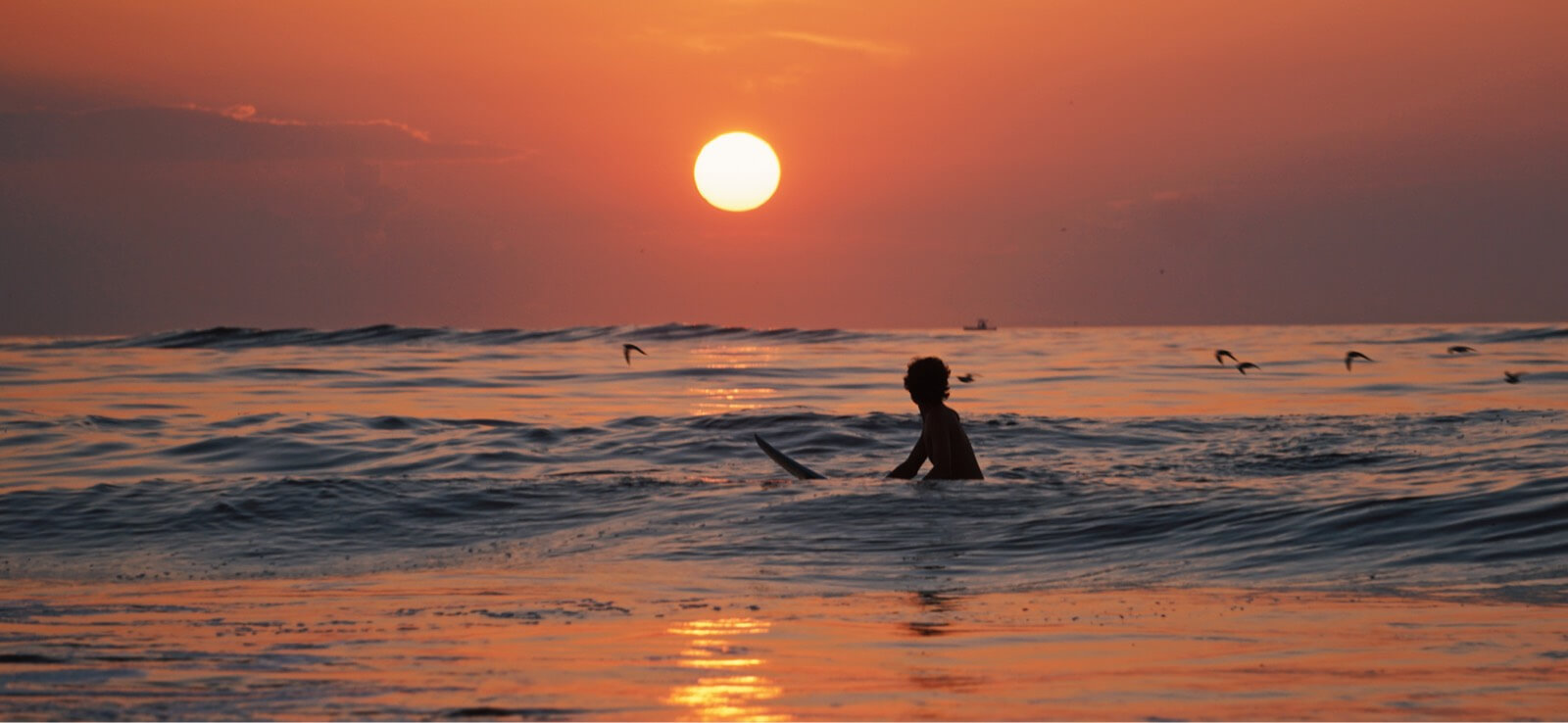In the year 41 AD, the Roman philosopher Seneca was banished to the island of Corsica by the emperor Claudius. Seneca used his time in exile to reflect on the nature of human suffering and misfortune, primarily in the form of letters to friends and family members.
These letters contain a wealth of insights, both practical and profound, into the nature of anxiety, grief, and suffering generally. But more than that, they suggest a method of cultivating our minds and attitudes so that we might learn to confront our suffering well and find inner peace within our distress-or in Seneca’s own words, create “serenity in the midst of a hurricane.”
What follows is a collection of quotations from Seneca’s letters—lightly edited for clarity—followed by my own brief thoughts and reflections on them.
On Expectation
The greatest obstacle to living is expectancy, which hangs upon tomorrow and loses today. You are arranging what lies in Fortune’s control, and abandoning what lies in yours. What are you looking at? To what goal are you straining? The whole future lies in uncertainty: live immediately.
All too often our actions and decision are governed by unseen mental scripts and beliefs, of which expectations about the future are often central. If we can learn to identify and modify these unacknowledged expectations—which often take the form of negative self-talk—we stand a better chance of following Seneca’s advice to take responsibility for the parts of our lives we do have control over and accept the parts we don’t.
On Anxiety
Life is short and anxious for those who forget the past, neglect the present, and fear the future… They dash from one pleasure to another and cannot stay steady on one desire… They lose the day waiting for the night, and the night in fearing the dawn.
As a psychologist who works primarily with anxious people, this insight from Seneca on the nature of anxiety rings true: the root of anxiety is avoidance, which for many of us takes the form of constant distraction. And while distraction provides temporary relief, we pay a high price: our lives narrow and constrict to the point that we barely recognize ourselves anymore.
On Minimalism
The longer people extend their colonnades, the higher they build their towers, the wider they stretch their walks, the more massively they raise the roofs of their dinning-halls, so much the more they will be to cut off the sight of heaven.
Minimalism is about more not less. Decluttering and reorganizing are a means to end. The fewer unimportant things we surround ourselves with, the easier it is to stay focused on what matters most.
On Prosperity
No man has been shattered by the blows of Fortune unless he was first deceived by her favors… But the man who is not puffed up in good times does not collapse either when they change. His fortitude is already tested and he maintains a mind unconquered, for in the midst of prosperity he has tried his own strength against adversity.
With prosperity comes comfort, and with comfort, weakness and frailty of mind and mood. Though counterintuitive, the best use of good times may be to seek out adversity and learn to confront it well so as to build up mental strength for the inevitable suffering of difficult times ahead.
On Grief
To be afflicted with endless sorrow at the loss of someone dear is foolish self-indulgence, and to feel none is inhuman callousness. The best compromise between love and good sense is to feel longing and conquer it.
When confronted with emotional suffering like grief or fear, most of us employ one of two strategies: We try to fix or avoid, fight or flee. But the soul of mental health lies down the middle road, in the willingness to acknowledge our emotions and carry them with us as we move toward our highest values and aspirations.
On Boredom
If you apply yourself to study you will avoid all boredom with life.
Because of our experiences in traditional education, we instinctively recoil from the word study. But it’s been my experience that there are few things as predictive of emotional wellbeing and contentment as the habit of continual learning and development. We ought to see graduation not as a final reprieve from study but the beginning of studying on our own terms.
On Friendships
Nothing delights the mind so much as fond and loyal friendship. But you must avoid those who are gloomy and always lamenting, and who grasp at every pretext for complaint. Though a man’s loyalty and kindness may not be in doubt, a companion who is agitated and groaning about everything is an enemy to peace of mind.
You may think that charity and devotion demand unceasing tolerance of the people in your life who fit Seneca’s description above. And maybe they do. But it’s worth playing psychologist for a moment to ask yourself: Even if I’m willing to sacrifice my own peace of mind, what set of behaviors, beliefs, and attitudes toward life am I reinforcing by giving a willing ear to all this complaining?
On Sleep
Sleep too is essential as a restorative, but if you prolong it constantly day and night it will be death.
Amazing that we’ve known about the Sleep Effort Paradox for 2,000+ years, and yet, not only do we still fail to get it, but if anything we seem to be moving in the opposite direction.
On Forbearance
You must reflect that fettered prisoners only at first feel the weight of the shackles on their legs: in time, when they have decided not to struggle against but to bear them, they learn from necessity to endure with fortitude, and from habit to endure with ease.
Fortitude and forbearance are not virtues we talk about much these days. And if we do, it’s typically in reference to other people. But what would it look like if, instead of trying to cure and escape your suffering, you cultivated the capacity to bear your suffering well, to invite it into your life, welcome it even?
On Jealousy
Let us not envy those who stand higher than we do: what looks like towering heights are precipices.
A good one to remember while browsing Instagram.
On Idleness
Most men wander aimlessly looking for employment, and they do not what they intend but what they happen to run across. Their roaming is idle and pointless, like ants crawling over bushes. They then return home, worn out to no purpose and swearing they themselves don’t know why they went out or where they have been – and the next day they will wander forth on the same old round. So let all your activity be directed to some object, let it have some end in view. It is not industry that makes men restless, but false impressions of things drive them mad.
There’s a difference between living for outcomes and living with purpose.
On Flexibility
We should also make ourselves flexible, so that we do not pin our hopes on our set plans, and can move over to those things which chance brings us, without dreading a change in our purpose or condition. For obstinacy, from which Fortune often exhorts something, is bound to bring wretchedness and anxiety.
There’s a case to be made that the core of emotional suffering is rigidity, the inability or unwillingness to change and adapt, to flex one’s mind and behavior in accordance with the demands of reality.
On Humor
So we should make light of all things and endure them with tolerance: it is more civilized to make fun of life than to bewail it.
It’s an interesting thought: What does it mean to have a “civilized” attitude toward our own suffering? Humor keeps us light, and lightness fosters tolerance. And eventually, one hopes, tolerance fosters progress—in our societies and our souls.
On Rest
Our minds must relax: they will rise better and keener after a rest. Just as you must not force fertile farmland, as uninterrupted productivity will soon exhaust it, so constant effort will sap our mental vigor, while a short period of rest and relaxation will restore our powers.
Because effort works much of the time, we assume it should be applied maximally in all situations. But as every ancient Roman farmer (and Stoic) knew, the blind application of effort doesn’t work out so well.
On Death
He who fears death will never do anything worthy of a living man. But he who knows that this was the condition laid down for him at the moment of his conception will live on those terms, and at the same time he will guarantee with a similar strength of mind that no events take him by surprise.
Why go out of our way to confront our mortality and the inevitability of our death? Because it cultivates intentionality and clarity. When we see clearly and live with intention we live with strength.
On Living
One of my favorite college English professors used to say that all great literature asks two great questions: What is the nature of reality? And How should a life be lived?
It never ceases to amaze how infrequently we consider that second question: What kind of life do I want to live? What truly matters to me? How best can I go after it? What type of person do I aspire to be?
Yet, how can we find answers to those questions if we never stop to ask them?
For the past 10 years, I’ve made it a New Year’s tradition to read a little book of Seneca’s letters called On the Shortness of Life. Far from the gloomy philosophical treatise you might imagine, it’s one of the most life-affirming things I do each year. Because it reminds me of those two great questions.
The nature of reality is that I will die one day. That my time here is short and precious. Which demands that I ask and try to answer the next question: How best can I spend my time here? What good can I do with what time I have?
Strangely, the more I turn into these questions—confront them, explore them, welcome them—the more my life seems to expand, deepen, and ultimately, move toward the ever-elusive inner peace.
Because it’s true:
Life is long if you know how to use it. —Seneca





6 Comments
Add Yourstimeless advice fostering a receptive, accepting and forward-looking mindset that is so important for psychological, emotional and spiritual growth
Thank you for sharing this book & its wisdom Nick! I love the timeless principles you highlighted and, I look forward to reading the entire book as well.
The principles are life affirming. So true as it suddenly frees the shackles of ignorance we normally wield.
A most invigorating review of a variety of concepts and practices, about which we have too many fixed inflexible ideas and habits. Thank you from Darrel Blake in Johannesburg SA
Read this , love it ! Thanks , Nick !
Great insights! Thanks for sharing Nick!